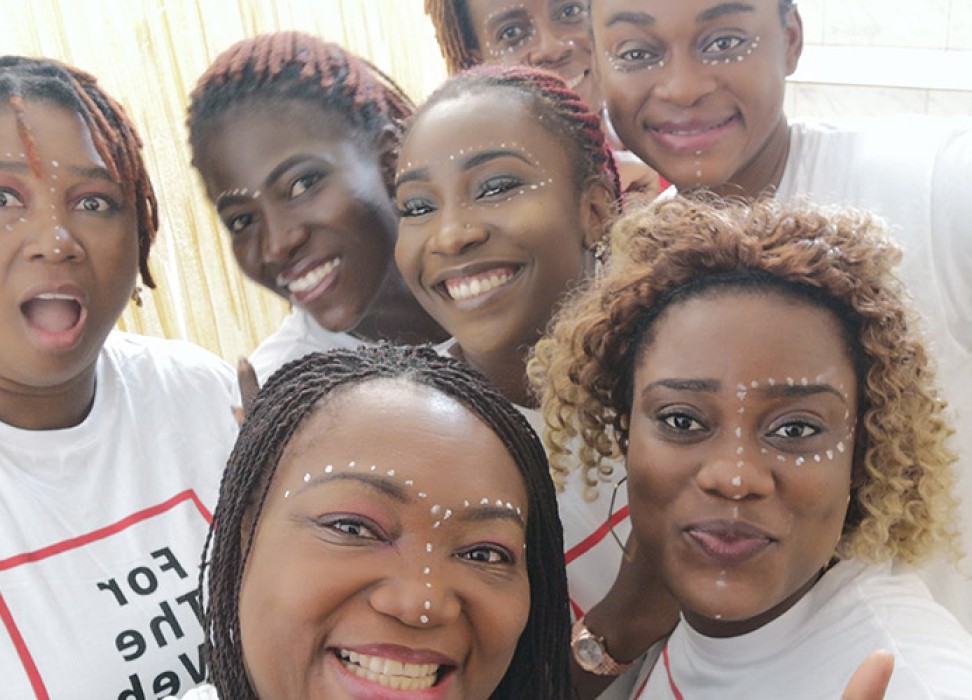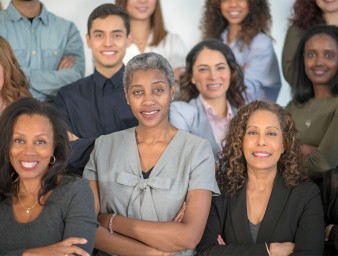“The web was created for everyone, regardless of their gender”
06 January 2022

UN Human Rights and the Web Foundation - the organization created by Tim Berners-Lee, the inventor of the world wide web - have joined forces to fight gender inequality in the digital sphere.
A survey conducted the Web Foundation revealed that 50 per cent of women respondents in rural areas and 45 per cent of women in urban areas said they did not know how to use the internet. These figures come in contrast with other findings that show that globally, men are 21 per cent more likely than women to be online and, once online, men are 29 per cent are more likely than women to create content.
The results of the survey appear in a report issued by the Web Foundation in October 2020, entitled “Women’s Rights Online: closing the digital gender gap for a more equal world”. The partnership between UN Human Rights and the Web Foundation expects to further digital equality by creating educational content for women and girls and empowering them to meaningfully participate in tech by accessing online spaces, creating content, and learning to code.
“The web was created for two reasons: to be a force for good and to be accessed by everyone, regardless of their gender,” said Nnenna Nwakanma, Chief Web Advocate at the Web Foundation. She stressed that only half of the world’s population was connected. “Women need connectivity to educate themselves, to claim and ensure their rights and for their everyday lives,” she added.
The Web Foundation’s research has also shown that women have greater concerns over their privacy than men, especially about having their personal data misused, including in relation to online harassment and abuse. Women are also more sceptical about tech companies using their data responsibly. Fifty-four per cent of women respondents said they would not allow companies to use any of their data, compared with 47 per cent of men.
The COVID-19 pandemic has brought to the fore a number of disparities linked to gender and connectivity. According to Nwakanma, an increase in gender-based violence in the home because of close proximity during periods of lockdown has also translated into more verbal, sexual and intellectual abuse online.
“As a result, women self-censor, they speak less or just delete their accounts and disappear from the internet,” she said.
A report by the Alliance for Affordable Internet, that analysed the digital exclusion of women in 30 developing countries, found that the digital gender gap cost those countries hundreds of billions of dollars, Nwakanma said.
To start addressing the lack of tech skills that keep a substantive portion of women offline and to encourage them to produce more online content, the Web Foundation encouraged Akandewa to launch the She is the Code programme in West Africa. The programme, launched in 2016, teaches women and girls programming and digital management. So far, 950 participants have graduated from the programme.
Some of the graduates of the She is the Code Programme created a campaign to counter COVID-19 misinformation and hate speech, with content appearing online on social media and on the radio in local languages. For Human Rights Day last year, some of the programme participants joined in UN Human Rights’ campaign to promote equality offline and online.
At the Human Rights Council in September this year, UN Human Rights Chief, Michelle Bachelet, urged States to “honour their commitment to facilitate technology transfer to developing States and integrate programmes for women’s and girls’ access to digital technology in their development and assistance policies.”
“Issues of access to, use and misuse of digital technologies should be guided by international human rights norms and principles, especially equality, non-discrimination, inclusion, participation and the provision of effective remedies,” Bachelet added.



